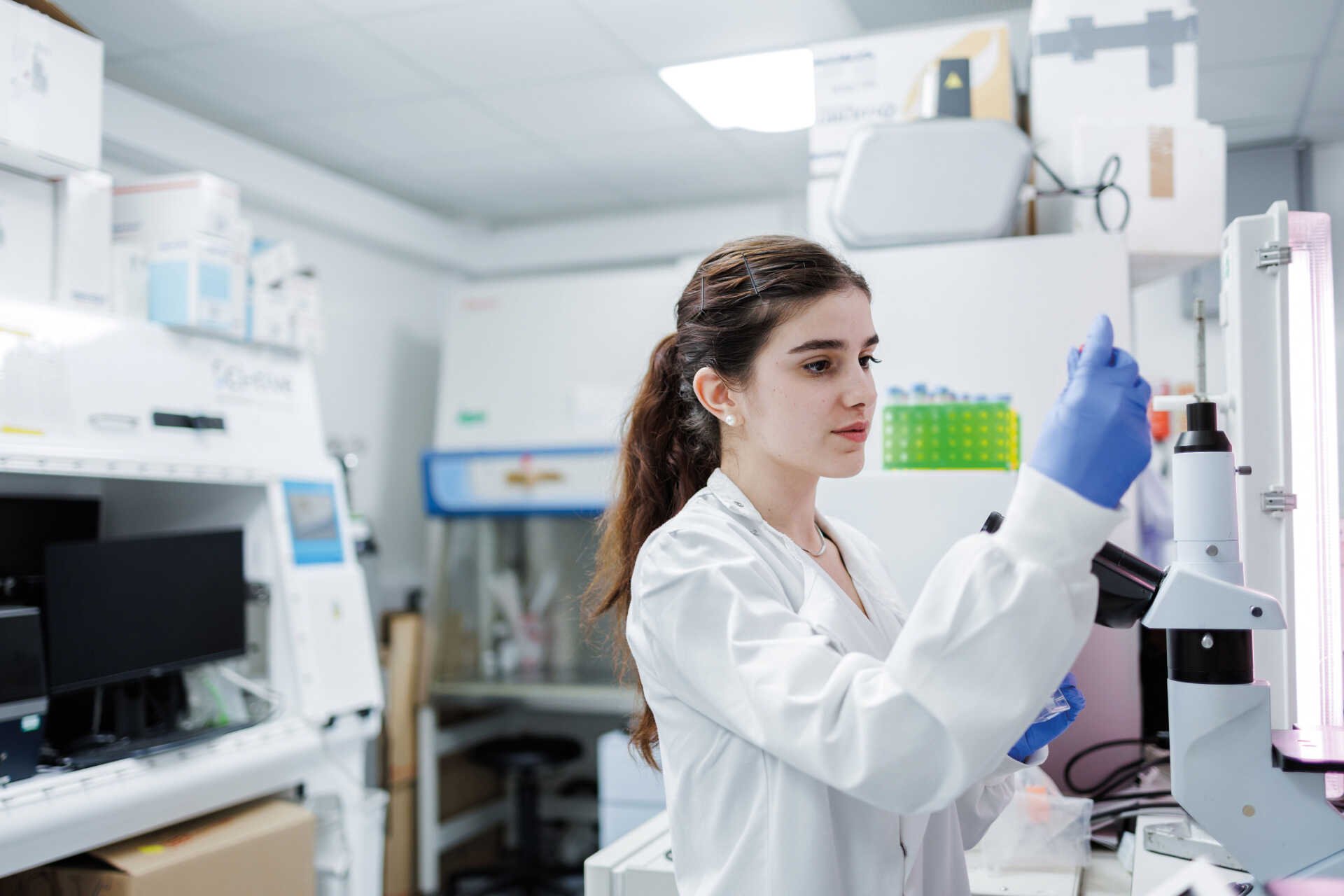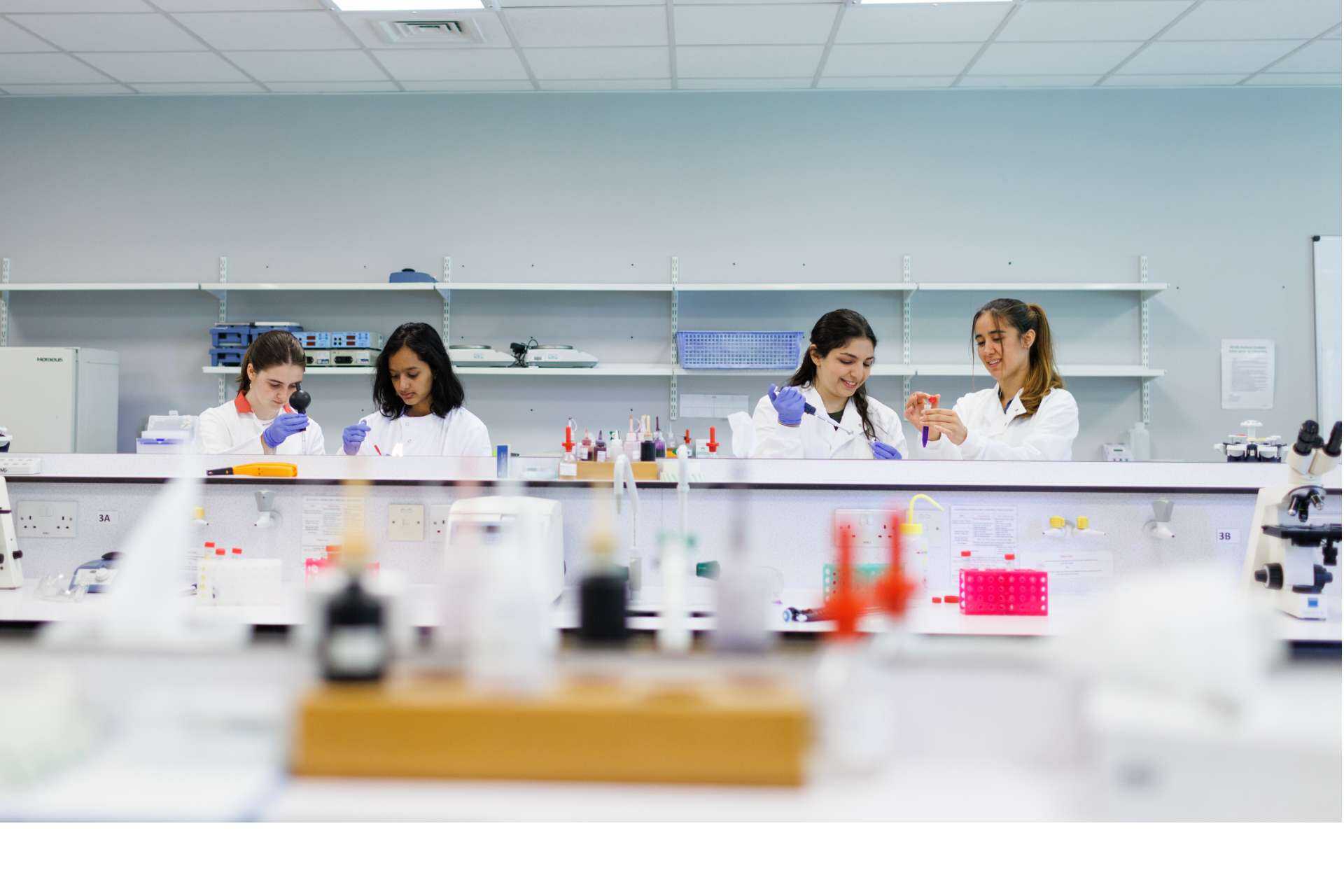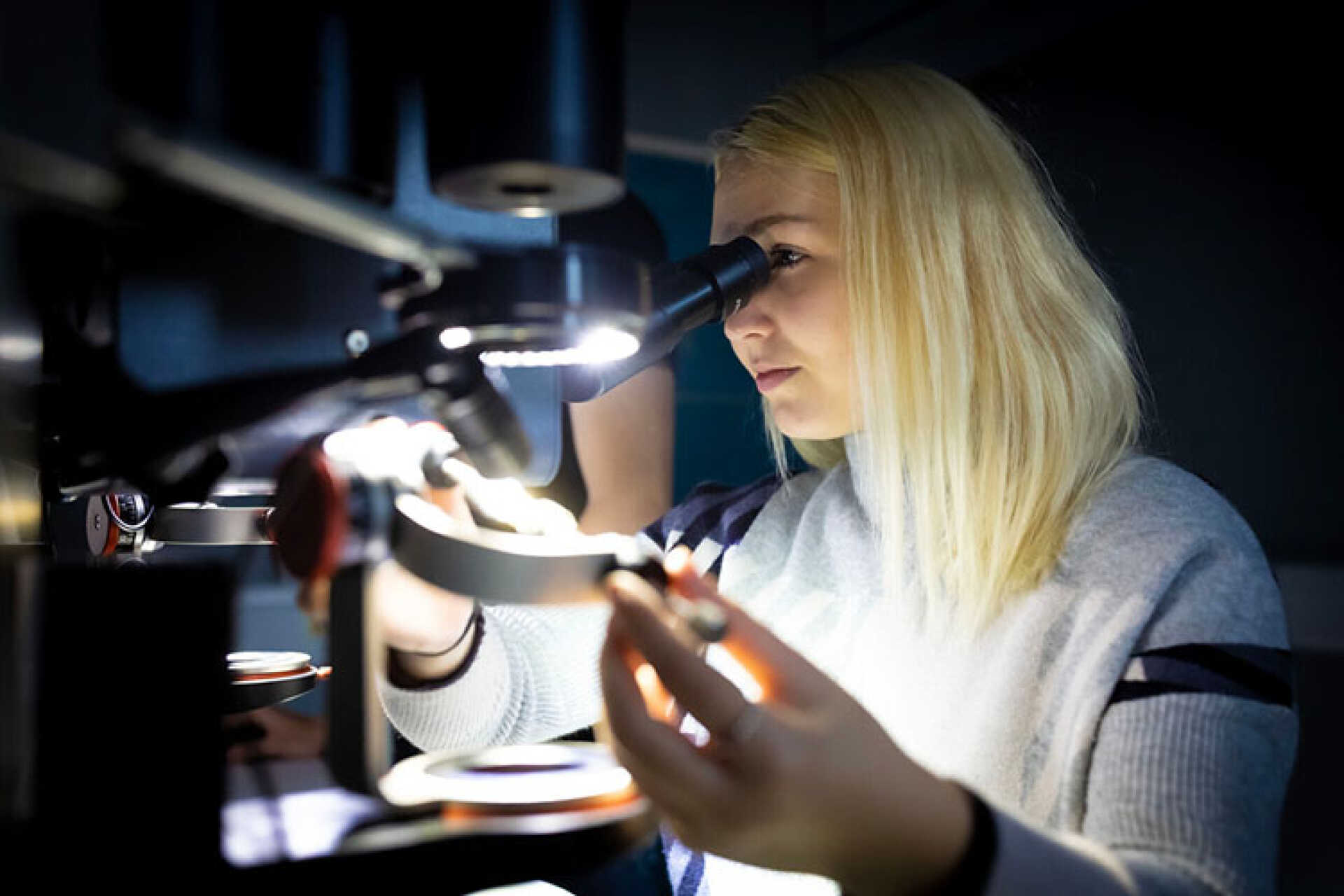What can I do with a degree in Biosciences?

With a Biosciences degree from the University of Kent, you'll gain strong practical lab skills, alongside data analysis, and critical thinking, preparing you for roles in areas such as research, health sciences, and other sectors. Our Bioscience courses are accredited by The Royal Society of Biology, ensuring graduates meet specific quality standards and their knowledge is relevant and up-to-date. Get ideas and inspiration here before booking a one-to-one appointment with a Careers Adviser.
Careers in Biosciences
The following roles are examples of the types of job opportunities available to graduates of Biosciences, utilising skills in scientific analysis, laboratory techniques, data interpretation, and problem-solving.
Biochemist - Analyse biomolecules, enzyme activity, and metabolic processes in labs to helps with the diagnosis and management of diseases.
Laboratory Technician/Clinical Scientist - Support diagnostic testing or research in healthcare or pharma through providing technical support that enables effective lab research.
Biomedical Scientist - Work in NHS or private labs, carrying out tests and interpreting results for a wide range of medical conditions and diseases. Biomedical Scientists usually specialise in one of four areas: infection sciences, blood sciences, cell sciences or genetics/molecular pathology.
Clinical Bioinformatics Analyst - Use computing methods to analyse genomic and biological data and improve methods for acquiring, storing and organising data to support patient care.
Embryologist - Perform clinical diagnostic testing and therapeutic embryological procedures for clients in hospital and clinical settings, to help with reproductive procedures.
Microbiologist - Apply knowledge of microbes such as viruses, bacteria or fungi to solve problems affecting human and animal health, the environment, climate, food and agriculture. Microbiologists can specialise in areas such as research & development, medicine, environment and climate change, agriculture/food safety and healthcare.
Environmental/Nature Conservation Officer - Apply biological knowledge to protect ecosystems and biodiversity and shape environmental policy.
Alternative career paths
Science Writer/Publishing - Use your scientific background to work in journalism, education, or outreach, in order to make science accessible and engaging to the public and specialists. You might edit or develop content for academic and professional scientific journals.
Regulatory Affairs Officer - Ensure compliance in the pharma, food, or biotech industries, providing links between an organisation, its products and the regulatory body.
Medical Sales or Scientific Marketing - Use your science knowledge and skills in communication, negotiation and collaboration, in a business context.
Civil Service / Public Health - Roles related to regulation, policy, or science and innovation for the Government.
Teaching - As a secondary school Science Teacher (via a PGCE or School Direct).
Where do University of Kent graduates work?
This is a selection of organisations that have employed University of Kent graduates in the past. There are many more possible employers in these and other industries.
- Research & Pharma: GlaxoSmithKline, AstraZeneca, Pfizer, Lonza, Oxford Biomedica, Reckitt
- Environmental & Conservation: National Trust, conservation NGOs
- Clinical & Diagnostic: Kent & Canterbury Hospital, Nuffield Healthcare, Other NHS Trusts
- Education & Public Sector: Secondary schools, university labs, local government
- Life Science Start-ups and Agri-Biotech

Find a job
The Careers and Employability Service provides information and advice on job searching to University of Kent students and recent graduates. This includes Uni Kent Careers Hub, advertising a range of graduate jobs, placement year and vacation work/internships.
Tips to stand out
Showcase lab skills: Use final-year research projects or industry year work placements as portfolio highlights. Include any technical skills developed such as ELISA, PCR, Western Blotting, Microbiology, cell culture etc.
Gain work experience: Apply for summer internships and professional year placements to develop technical and transferable skills.
Learn bioinformatics tools: Develop skills in data analysis, genomics, or computational biology.
Engage in communication: Present at seminars and conferences or write for science newsletters or blogs.
Network with alumni and mentors: Use LinkedIn and Kent’s Career Mentoring scheme to build connections with alumni and professionals and attend university events to gain insights into your target roles and industries.
Engage in extracurricular activities: Participate in societies such as BioSoc and UKC Forensic Science Society, and engage in sessions delivered by visiting speakers.

Year in industry
A year in industry can have a big impact on your employability. By gaining real-world experience and learning key skills in the workplace, and pairing these with the knowledge you gain on your degree, you can become a highly employable candidate in the labour market. The year can be based in the UK or abroad, including your home country if you're an international student, and contribute to your final degree. At The University of Kent, many courses include an optional year in industry between your second and final year, where you undertake graduate-level work related to your studies.
Further study
Some students may pursue further study for example in a specific area such as an MSc or MRes in Genetics, Molecular Biology, Ecology, Biotech or Bioinformatics.
Professional routes can be taken into Clinical Scientist HCPC registration, public health roles, or teaching (PGCE pathways included).